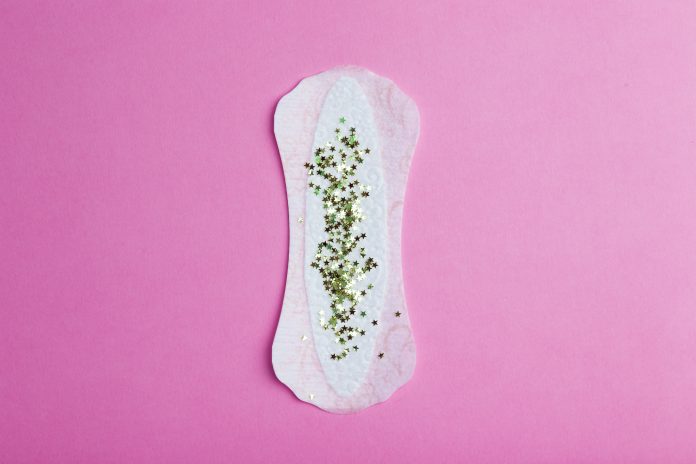Carolyn Hobdey examines how the global pandemic affected women’s health attitudes, such as contraception, menstruation and reproductive rights
Reproductive health is a topic often ignored or overlooked, women and people with wombs are commonly turned away from their GPs office with doctors attributing illnesses to menstruation without explanations or solution.
With women’s healthcare lacking already, Carolyn Hobdey explores what impact has COVID-19 had on women’s health attitudes and people with wombs reproductive and sexual health and what we can do to change it.
COVID-19 and general health
It has been well documented in the media how waiting lists and treatment within the NHS has fallen dangerously behind schedule as a result of the COVID-19 pandemic, with many people avoiding, delaying, or having diagnosis and treatments cancelled.
At the top of the headline-grabbing list of conditions is, understandably, cancer; the statistics on the impact of the pandemic on the survival rates of patients in future decades is scary. It is hard to imagine the mental, as well as physical, burden on those waiting for appointments, results or medical interventions.
This is when you are already in the system for cancer care—a place none of us would want to find ourselves, of course—but what about those currently outside of that system? What about the other conditions? The routine check-ups, the GP appointments, the chance to discuss or be asked about our symptoms or health. It is in these places where a cancer diagnosis, or that of any serious illness, typically begins. Few of us—even with the help of ‘Dr Google’—would show up at our GP’s office thinking or knowing that we had something life-threatening. Symptoms don’t tend to work that way. They rely on slight shifts being noticed, insightful questions from someone who knows what they’re trying to establish and, most vital of all, the chance to talk about our bodies. Women’s health attitudes are key to that balance.
The pandemic has stripped so much of this away. In the first instance, simply getting through to your GP’s surgery has become harder: doctor’s receptionists report that the influx of calls and amount of patient contact has risen significantly throughout this period. Their workload has increased at the same rate that patient attitudes have declined. Abusive behaviours to medical staff have long been an issue, but never more so than today—where are the NHS-celebrating, applauding members of the public now?
Next, when you get through to the GP practice, either by telephone or, the increasingly common method, via an e-consult form, the default option is for a phone consultation. Rarely are we seen face-to-face and when we are, we all know the ridiculously short amount of time our GP’s have to actually conduct an appointment. Most of us feel that pressure and know we need to expedite the experience as quickly as possible for the doctor’s sake and for the patients that come after us—all of whom have also not been handled in the unrealistic appointment slot they were given.
COVID-19 and female reproductive health
Let’s face it, as women we know how it feels to be pushed for time, under pressure, and trying to juggle several demands for our attention! Which means we sympathise with our GPs and health providers in general. Our collective ‘modus operandi’ is to try to make that better—to fix it. Add to that the constant media and social discourse about the pressure the NHS is under, and how that reflects our experience of our own lives, and it all feeds into a woman’s natural inclination to ‘not make a fuss’ and ‘just get on with it’. We soldier on, focus on others and put our own needs – frequently the need to pay ourselves some care and attention – to the bottom of our endless ‘to do’ list.
That’s been a negative impact of the pandemic for women. The chance to talk to other women, share our concerns, insights, knowledge and support in the way we once did, was taken away. A health niggle that we might have shared with a friend or gained encouragement to consult a doctor about, didn’t get discussed. For many, it was impossible to get a quiet moment on the phone or over video call without the interruption of family members working or being schooled in our homes. It felt like there was always so much to do at a time when there was so little we were permitted to actually do. Merely getting from one end of the day to the other was job enough in itself.
What resulted, however, was that regular contraception reviews, the chance to speak about changes in menstruation patterns, duration or severity, and routine Cervical Smear appointments all got pushed down in our priorities. Our most basic healthcare got overlooked. Those signs and symptoms of something requiring further investigation got ignored or missed. The adverse mental health impacts of physical ill-health increased. Individual women’s health suffered. National women’s health suffered. The National Health Service suffered. We all continue to suffer.
So what? That may be a blunt question, but it’s a valid one. Who should care and what can we do about it?
As with so many things, the answer lies in communication. More specifically, in dialogue and education. We need to put our metaphorical pencil in the hamster wheel and stop it for a moment. Instead, we need to start to speak up and to each other. The importance of women’s wombs needs to be recognised, but that starts with women recognising that for and within themselves. This fundamental organ of our wellbeing needs to be as much at the heart of our health as… well, our hearts.
For women, our reproductive health is essential to our overall health – those parts are not just there for making babies for a couple of decades. Our hormones play an essential role throughout the whole of our lives in keeping our tissue systems, vital organs and our brains functioning properly. Want to have a long life? A healthy life? Pay attention to your hormones, Ladies!
Top ways for post-pandemic women to get started:
1. Listen up
Spend some time listening to your body. What, if anything, has changed? Have your periods altered? Do you have pain – new, more or a different type – during your menstrual cycle? During intercourse? Where and for how long does it occur?
2. Take note
When all the days of the lockdowns merged together, it was easy to lose track and to feel like we’ve been living in a parallel universe for almost two years! Start diarising your menstrual cycle – dates, duration and severity – so that you notice any patterns and know what your current ‘normal’ is.
3. Conduct a review
We are naturally creatures of habit and we stick with them even when they no longer work for us, so ask yourself: What contraception are you taking? Is it still working for you? Are there any impacts and side-effects (ongoing or new) that you’d like to address?
4. Make a date
Commit to making an appointment with your GP – either in person or on the phone – to discuss your reproductive health. Whether it’s changes you’ve notice, current contraception, checking if you’re due a smear test, discussing whether you’re peri-menopausal… all of these are essential to your future health.
5. Start a conversation
We all have health concerns and questions about our bodies – what’s normal and what’s not? Raise your concerns with friends (as well as your health professional, of course) and be open to being open about them. You’ll likely find they are grateful to talk about their worries and you never know what prevention that conversation could lead to.
Whether you caught Covid or not, the pandemic has had an impact on the health of most people. It is great that the world is returning to some kind of normality, but the lingering effects—physically and mentally—should not be underestimated. For women, it’s time to be a little selfish and take a moment to care for ourselves. Women’s health attitudes can change how we go forward. We owe it to our bodies and to those we care for.











